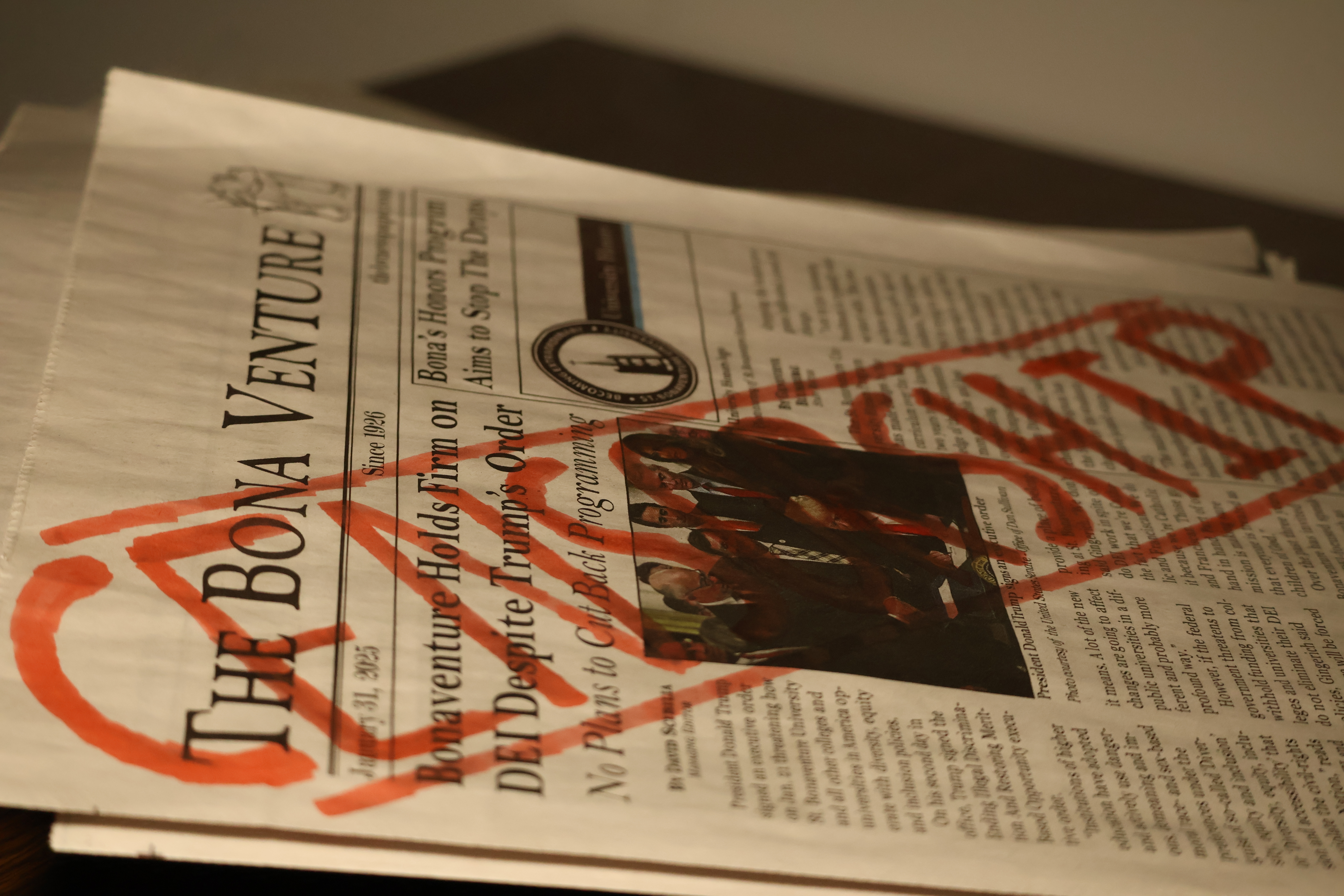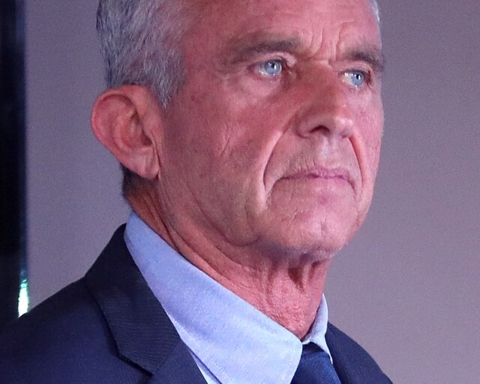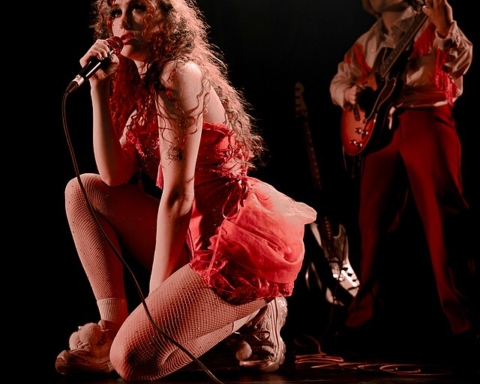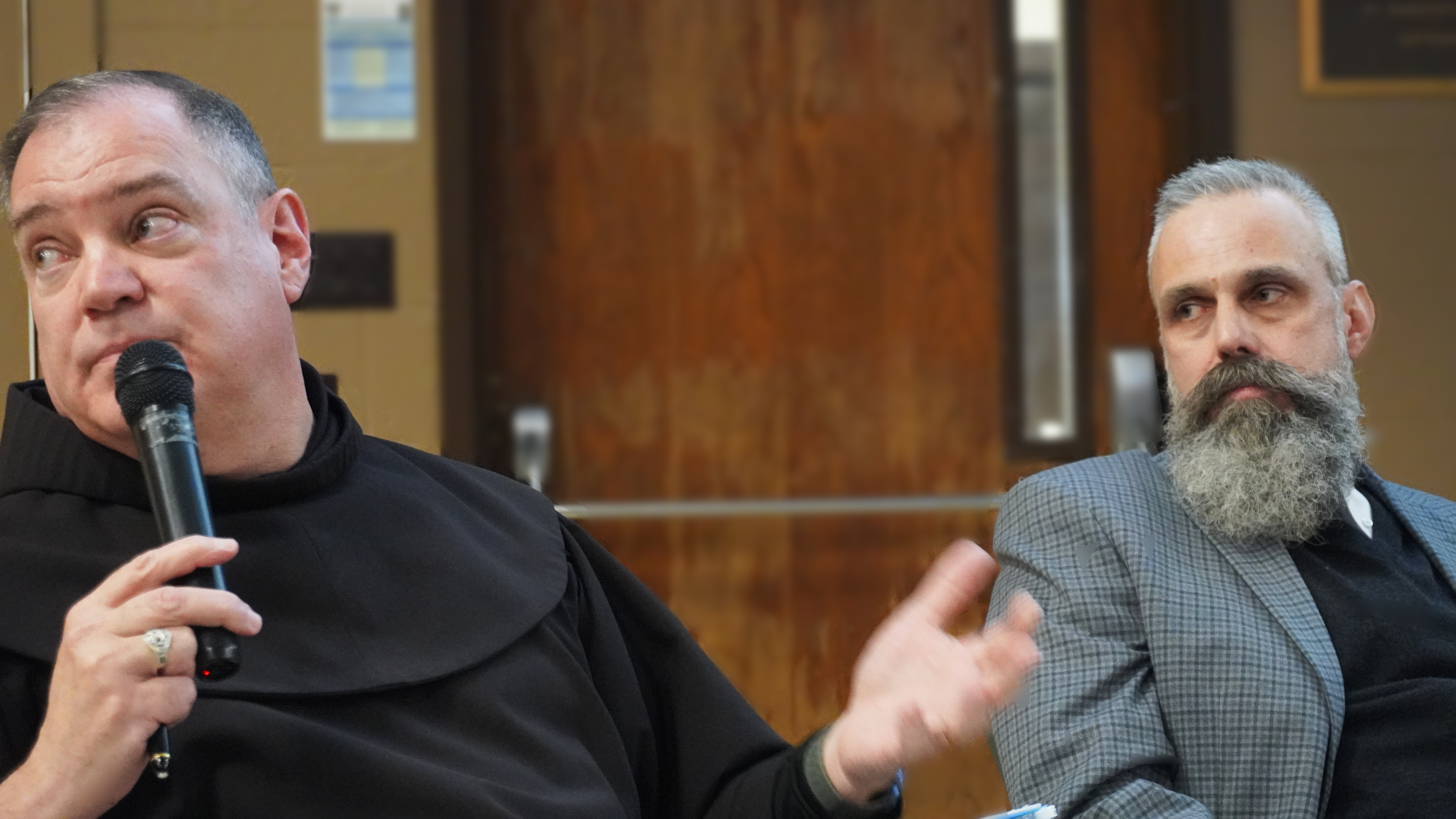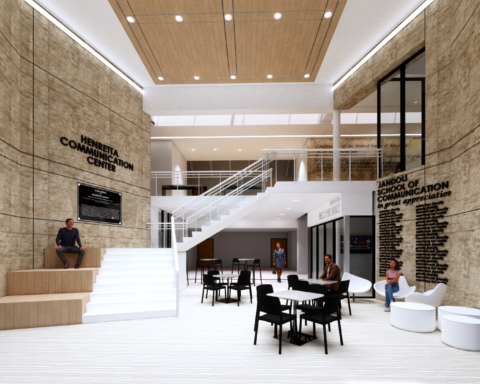By Lian Bunny
Co-Photo Editor
This year’s Lenna Visiting Scholars traveled across the Atlantic Ocean to talk about American politics.
Journalists Alan and Barbara Mackenzie presented their talk “UK: State of the Nation” on Nov. 9 to the St. Bonaventure community.
The late Betty S. Lenna Fairbank and Reginald A. Lenna of Jamestown funded the Lenna Endowed Visiting Professorship, established in 1990. As Lenna scholars, the Mackenzies also spoke at Jamestown Community College.
The Mackenzies regularly teach or advise for Bonaventure’s summer Francis E. Kelley Oxford program. They also continue to be involved in media and teaching activities in the United Kingdom, and they operate a bed & breakfast.
Alan said the whole world watched this week’s presidential election closely because of its global significance.
“We’ve accused Americans in the past for thinking they’re the center of the universe,” he said jokingly. “Well you’re not, but [Election Day] you were.”
He said many people in Britain are most concerned with U.S. foreign policy, worldwide safety and the global economy.
“It’s Hillary [Clinton] who seemed to fit the bill,” Alan said. “Also, you’re a democracy and so are we. I think there’s a strong feeling that Clinton is more democratic with a small ‘d’ than Donald Trump.”
Barbara agreed and said some issues such as Clinton’s email scandal would not mean as much to British media and citizens.
“If the candidates were involved in some sort of economic scandal or worse, then that would obviously play a part,” she said. “But emails that [were] at best, careless, and at worst, careless, just didn’t seem to be that much of a problem.”
The Mackenzies said many of the people and media in the United Kingdom supported Clinton over Trump.
However, Trump won the presidency.
While the Mackenzies predicted and hoped Clinton would win, they said they see a resemblance between Trump’s campaign and Brexit.
Brexit refers to a British referendum voted on in the summer of 2016, where the majority of voters wanted Britain to leave the European Union. The Union began as a trade organization and included 28 countries—27 now that Britain has left.
“The bulk of the vote for Brexit was like a great bulk of the appeal to vote for Trump,” Alan said. “Both countries [have] had for quite a long time a large blue-collar working class constituency of people who have felt that they have been ignored by central government. They feel alienated, they feel dissolution, furious that they’ve been left behind by the establishment.”
The main difference: Brexit occurred due to low voter turnout, according to Alan.
Many people did not think the vote would ever pass to leave the Union, so some did not show up to vote against it.
In the U.S., voter turnout increased this election by about 5 percent from last election, according to USA Today.
Both sides were energized by the possibility they could lose, said Alan.
Barbara said, looking forward, Trump’s first job as president won’t be easy.
“[The election] divided the country, and I think that the problem will be…to unite the country because of the divisiveness of the campaigns.”
bunnyla13@bonaventure.edu

